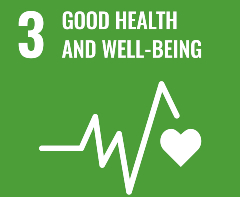.jpg)
Building a COVID-19 database for rheumatic disease
Kimme Hyrich, Clinical Professor of Epidemiology at Manchester and Rheumatology Consultant at the Manchester University NHS Foundation Trust, is working with patients living with pre-existing medical conditions to monitor whether the life-saving medication they rely on increases risk during the COVID-19 pandemic.
At the outbreak of COVID-19, health professionals expressed concerns for patients with rheumatic diseases, including rheumatoid arthritis, juvenile idiopathic arthritis or lupus, and whether they had a higher risk of contracting and developing severe COVID-19, resulting in hospitalisation.
In many of these cases, patients depend on immune-suppressing drugs, which increase the risk of getting serious infections.
Answering the call for new research
“As COVID-19 is new and unknown, lots of research is taking place around the world to understand the risk factors for severe common infection and what this means to patients with rheumatic diseases,” says Professor Hyrich.
“To keep patients as safe as possible, they were advised to self-isolate or shield, which means to avoid sharing the same space with other people. The UK government identified 1.5 million people shielding applied to.
“Shielding can be problematic, especially if caring for young children, and through my own experience as a clinician, I have seen patients’ anxiety levels increase during the outbreak,” Professor Hyrich continues.
Building a database of patient data
Professor Hyrich is part of a project coordinated by the European League Against Rheumatism (EULAR), a multi-national rheumatology organisation. The EULAR project sits within the Global Rheumatology Alliance and includes epidemiologists from Europe, the US and Australia, who have created a COVID-19 database where doctors can share their experiences of patients with the disease.
“To learn more about COVID-19, we’ve established a European, physician-led database which allows us to look at and compare what is happening in Europe with the global picture in collaboration with our international partners,” Professor Hyrich explains.
Within 6 weeks of establishing the database, 800 patient cases were recorded in Europe. A range of information was captured about the nature of an individual’s underlying rheumatology diseases and the particular treatments received for and outcomes of COVID-19, such as whether the patient stayed at home or were hospitalised.
Partnership working
The new collaborative process between patients and medical practitioners has been endorsed by the British Society for Rheumatology and the American College of Rheumatology, among others. Similar projects are running for other immune diseases such as psoriasis and inflammatory bowel disease.
Meet the researcher
- Professor Kimme Hyrich, Clinical Professor of Epidemiology

